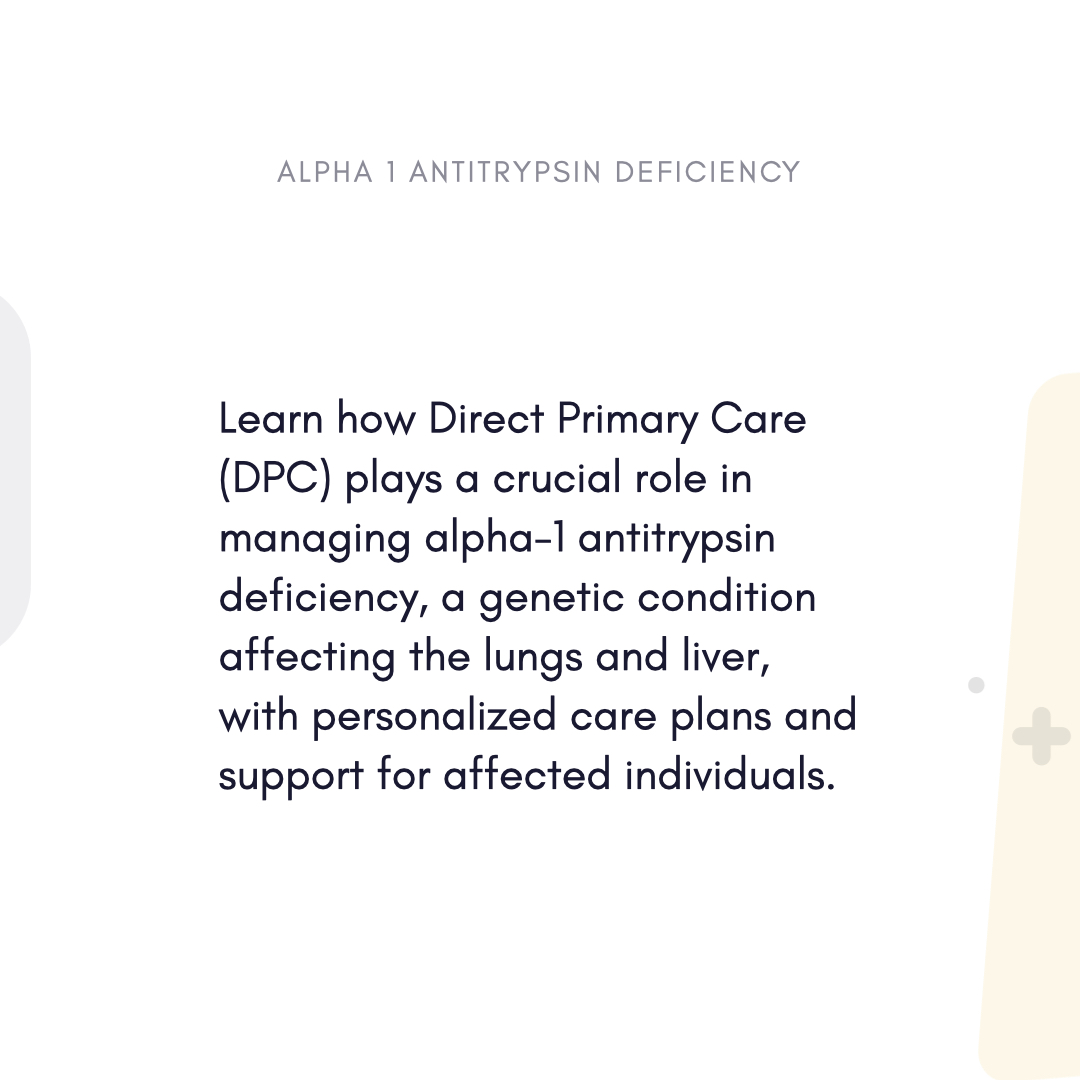



In individuals with alpha 1 antitrypsin deficiency, lung and liver diseases are predisposed to. An imbalance of enzymes occurs when there is insufficient alpha 1 antitrypsin protein in the body, increasing the risk of lung damage and liver dysfunction. In order to prevent progression and complications of alpha 1 antitrypsin deficiency, early detection, comprehensive monitoring, and personalized interventions are necessary. This condition can be effectively managed with Direct Primary Care (DPC), which offers a patient-centered approach to healthcare. Let's discuss how DPC may be able to play a vital role in managing alpha 1 antitrypsin deficiency.

In people with alpha 1 antitrypsin deficiency, the SERPINA1 gene is mutated, which results in decreased production or dysfunction of alpha 1 antitrypsin. Inflammation can damage the lungs if there isn't enough alpha 1 antitrypsin to neutralize enzymes released by white blood cells. This can lead to chronic obstructive pulmonary disease (COPD) and emphysema. Alpha 1 antitrypsin deficiency can also cause liver disease, including cirrhosis and liver failure.
A DPC model provides patients with direct access to their primary care providers without the need for referrals, allowing for a comprehensive evaluation and diagnosis. This accessibility allows for a thorough evaluation and diagnosis of alpha 1 antitrypsin deficiency, including genetic testing, pulmonary function tests, liver function tests, and imaging studies to assess the extent of organ involvement and determine the appropriate management approach.
Managing alpha 1 antitrypsin deficiency involves not only treating symptoms, but also addressing underlying inflammation, preventing disease progression, and minimizing complications. DPC providers provide holistic management strategies, including patient education, lifestyle modifications, smoking cessation support, pulmonary rehabilitation, and pharmacological treatments such as augmentation therapy, which replaces alpha 1 antitrypsin protein deficiency and reduces lung damage.
To optimize patient outcomes and quality of life, Alpha-1 antitrypsin deficiency needs to be managed and monitored for a lifetime. To ensure optimal disease control and patient satisfaction, DPC providers provide regular follow-up appointments, monitor lung and liver function, assess treatment response, and adjust management plans as required.
Alpha 1 antitrypsin deficiency treatment is customized to each patient's unique needs, taking into account factors such as severity of lung and liver involvement, symptoms, comorbidities, lifestyle factors, and goals. The goal of DPC is to optimize patient outcomes and enhance quality of life through the development of personalized treatment plans that may include a combination of medical therapies, lifestyle modifications, and supportive care measures.
Alpha 1 antitrypsin deficiency patients and their families can receive educational resources and counseling from DPC providers to better understand the condition, its causes, and treatment options. By empowering patients with knowledge and resources, DPC supports active involvement in their care and promotes better health outcomes.
In order to manage alpha 1 antitrypsin deficiency, pulmonologists, hepatologists, genetic counselors, and others are often required to coordinate care. To ensure comprehensive and integrated care addressing all aspects of the patient's condition, DPC providers facilitate communication and collaboration among members of the patient's healthcare team.

For individuals with alpha 1 antitrypsin deficiency, Direct Primary Care offers significant benefits. DPC empowers patients to effectively manage their condition and improve their quality of life through comprehensive evaluations, holistic management approaches and personalized treatment plans. This patient-centered approach to healthcare can help alpha 1 antitrypsin deficiency patients navigate their condition with confidence and resilience.
Previous Post